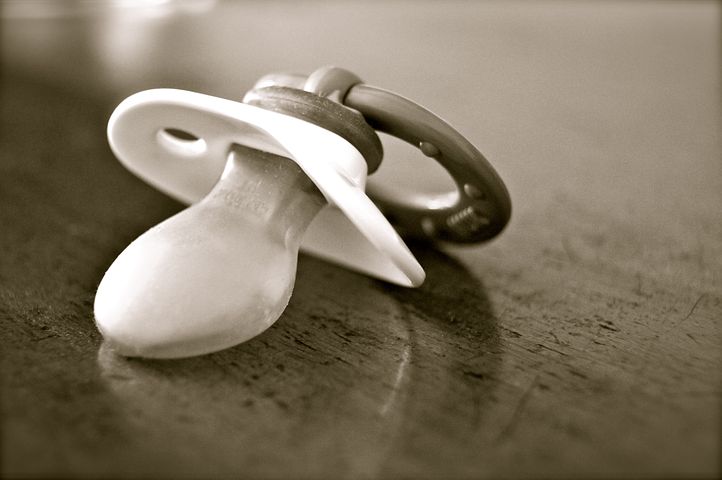Understanding Baby Grunting While Nursing
It is common for babies to grunt while nursing, but many parents wonder if it is normal and why it happens. Babies use grunting and crying as a way to communicate their needs and discomfort. The main reasons for grunting while nursing include hunger, colic, poor positioning when feeding, and a decrease in milk production. It is important for mothers to remain calm and patient during this time and seek support from breastfeeding specialists if needed.
Key Takeaways:
- Baby grunting while nursing is a common behavior and a way for babies to communicate their needs and discomfort.
- Main reasons for baby grunting while nursing include hunger, colic, poor positioning, and a decrease in milk production.
- Mothers should remain calm and patient, seeking support from breastfeeding specialists if needed.
- Understanding the normalcy of baby grunting while nursing can help alleviate parental concerns.
- If the baby shows signs of distress, has difficulty breathing, or has a change in color in the face, it is important to consult a pediatrician.
Reasons for Baby Grunting While Nursing
When it comes to baby grunting while nursing, several factors can contribute to this behavior. Understanding these reasons can help parents better navigate and address their baby’s needs. The main causes of infant grunting during nursing include hunger, colic, poor positioning when feeding, and a decrease in milk production.
Hunger: Hunger is the most common reason for a grunting baby during breastfeeding. When babies are hungry and unable to suck effectively, they become frustrated and cry. The grunting serves as a way for them to communicate their hunger and discomfort.
Colic: Colic can also lead to a grunting baby during breastfeeding. Babies with colic experience pain and seek comfort from breastfeeding. The grunting is their way of coping with the discomfort and trying to alleviate it.
Poor Positioning: Poor positioning during feeding can contribute to baby grunting. When the baby is not properly latched or positioned, they may struggle to suck effectively and experience discomfort. This can result in grunting as they try to feed.
Decrease in Milk Production: A decrease in milk production can cause babies to grunt during breastfeeding. When there is not enough milk available, the baby may become frustrated and grunt out of hunger and frustration.
In order to address baby grunting while nursing, it is important for parents to ensure that their baby is adequately fed, positioned correctly during feeding, and that there is a consistent milk supply. Seeking support from lactation consultants or healthcare professionals can also be beneficial in resolving any underlying issues contributing to baby grunting.
“Understanding the reasons behind baby grunting while nursing can help parents provide the necessary care and support to ensure a comfortable and successful breastfeeding experience.”
Alleviating Baby Grunting While Nursing
When your baby grunts and strains while nursing, it can be a source of concern and discomfort for both of you. But there are steps you can take to alleviate this issue and create a more peaceful breastfeeding experience. Here are some effective measures you can try:
1. Ensure proper positioning: Positioning your baby correctly during feeding is crucial for effective sucking and reducing discomfort. Make sure your baby’s head, neck, and body are properly aligned. Use pillows or a nursing pillow to support your arms and your baby’s body, ensuring a comfortable and secure latch.
2. Massage the baby’s tummy: Gently massaging your baby’s tummy in a clockwise motion can help relieve colic symptoms. It promotes digestion and reduces gas and discomfort. You can use your fingertips or the palm of your hand, applying gentle pressure. Always be mindful of your baby’s comfort and adjust the pressure accordingly.
3. Use a hot water bottle: Placing a warm water bottle wrapped in a towel on your baby’s tummy can provide soothing relief. The warmth helps relax the abdominal muscles and ease any discomfort or tension they may be experiencing. Be sure to check the temperature of the water bottle to ensure it is warm but not too hot.
4. Rest and let the baby suck: If you experience a decrease in milk production, it is important to rest and allow your baby to suckle frequently. This will help stimulate milk production and satisfy your baby’s hunger. Seeking medical advice from a lactation consultant or healthcare provider can also provide valuable guidance and support.
5. Mind your diet: Certain foods can affect your baby’s breastfeeding experience. Strong smells or spicy foods, for example, can cause discomfort and contribute to grunting and fussiness during nursing. Be mindful of your diet and observe any patterns between your food choices and your baby’s reactions. Adjusting your diet accordingly can make a significant difference.
Try implementing these measures to alleviate baby grunting while nursing. Remember, every baby is unique, so it may take time to find the strategies that work best for you and your little one.
The Normalcy of Baby Grunting While Nursing

Baby grunting while nursing is a common behavior for newborns and is considered normal. It is a way for babies to communicate their needs and discomfort during feeding. Grunting can be accompanied by squirming and other subtle movements as the baby adjusts to the process of breastfeeding.
It is important for parents to understand that grunting does not always indicate a serious problem. Most of the time, it is a normal part of the breastfeeding experience. Babies may grunt due to various factors, such as their immature digestive system, adjusting to the milk flow, or simply expressing their hunger or satisfaction.
By providing a calm and loving environment during breastfeeding, mothers can help their babies feel more comfortable. Creating a peaceful atmosphere can help reduce any potential stress or tension that the baby may feel. It is important for mothers to trust their instincts and bond with their babies during this special time.
It is worth noting that if you have any concerns about your baby’s grunting or if you notice any other unusual symptoms, it is always a good idea to consult with your pediatrician. They can provide reassurance and guidance based on your baby’s specific needs.
Remember that every baby is unique, and what works for one may not work for another. The key is to observe and understand your baby’s cues while maintaining open communication with healthcare professionals to ensure a positive and nurturing breastfeeding journey.
Remember, your baby’s grunting while nursing is usually a normal part of their development and a way of communicating their needs. Embrace this unique aspect of your baby’s feeding journey and provide them with the love and support they need.
Understanding A Grunting Baby
Grunting while eating or grunting during breastfeeding, is a term used to describe the common behavior of newborns grunting while feeding. It is a normal part of their development and adjustment to the process of passing stool and getting used to feeding. While grunting baby syndrome is usually not a cause for concern, it is important for parents to be aware of any accompanying symptoms that may indicate an underlying health issue.
During breastfeeding, babies may experience discomfort and grunt as they coordinate their sucking and swallowing reflexes. This behavior is commonly seen in newborns and typically resolves with time as their digestive system matures. It is important to note that grunting baby syndrome is not the same as constipation or a serious medical condition.
If your baby is grunting while eating or breastfeeding, it is generally a normal part of their development. However, if you notice any additional symptoms such as excessive crying, difficulty sleeping, poor weight gain, or changes in bowel movements, it is advisable to consult with your pediatrician. They can provide guidance and ensure your baby’s health and well-being.
“Grunting baby syndrome is a normal part of a newborn’s development and adjustment to feeding. It is essential for parents to be vigilant about any accompanying symptoms that may indicate an underlying health issue.”
When to Seek Medical Attention for Baby Grunting

In most cases, baby grunting while nursing is a normal behavior and does not require medical attention. However, there are instances when it is important for parents to seek medical advice to ensure the well-being of their baby.
If your baby shows signs of distress, such as excessive crying or fussiness, it may be a cause for concern. Additionally, if your baby has a fever or difficulty breathing while nursing, it is crucial to consult a pediatrician.
Changes in your baby’s facial color, especially if it becomes pale or bluish, could indicate a respiratory issue that requires immediate medical attention. It is essential to be vigilant and observe any unusual changes to ensure the health and safety of your baby.
“If the baby shows signs of distress, has a fever, has difficulty breathing, or has a change in color in the face, it is important to consult a pediatrician.”
Remember, as a parent, you are the best judge of your baby’s behavior. Trust your instincts and seek medical advice if you have any concerns about your baby’s grunting and fussing while nursing. Your healthcare provider can help diagnose any underlying health issues and provide the necessary guidance and support.
Keep in mind that seeking medical attention for your baby’s grunting is not suggesting that there is always a serious problem. It is always better to be cautious and have a professional assessment to ensure your baby’s well-being. Trust in your instincts and seek the advice you feel is necessary for your baby’s health and development.
When to Seek Medical Attention:
- Your baby shows signs of distress
- Your baby has a fever
- Your baby has difficulty breathing
- Your baby experiences a change in color in the face
Home Remedies for Baby Grunting
If your baby is grunting while nursing, there are several home remedies that you can try to alleviate their discomfort. Remember to discuss these remedies with your healthcare provider before using them:
- Anal Stimulation: Gently massaging your baby’s anus with a clean, warm cloth or using a cotton swab can help stimulate bowel movements and ease grunting caused by constipation.
- Adjust Feeding Position: Experiment with different breastfeeding positions to find the one that is most comfortable for your baby. Leaning back while nursing can help reduce pressure on their abdomen and alleviate grunting.
- Feed on One Breast: If your baby tends to gulp air while nursing, try feeding them on one breast at a time. This can help minimize air intake and reduce discomfort.
- Regular Winding: Take breaks during feedings to burp your baby. This can help release trapped air and promote easier digestion, reducing grunting.
- Keep Baby Upright: After feeding, keep your baby in an upright position for about 30 minutes. This can aid digestion and prevent excessive gas buildup, which can contribute to grunting.
Remember, each baby is unique, and what works for one may not work for another. Pay attention to your baby’s cues and consult your healthcare provider if you have any concerns or questions.
Understanding Baby Grunting and Bowel Movements
Baby grunting while nursing is a common occurrence that parents may observe. This behavior is often associated with bowel movements, as the baby’s immature abdominal muscles work to push the stools out. As the baby grunts, the larynx closes, and the diaphragm is pushed down, aiding in the bowel movements.
It’s important for parents to understand that grunting during bowel movements is a normal physiological response and doesn’t necessarily indicate constipation. The grunting is simply the baby’s way of exerting effort and utilizing their body’s natural mechanisms.
While it can be concerning to witness, especially for first-time parents, baby grunting during nursing and bowel movements is generally nothing to worry about. It’s important to remember that babies have different ways of communicating their needs and discomfort, and grunting is just one of them.
Providing a calm and supportive environment during feeding and bowel movements can help both the baby and parent feel more at ease. Remember to maintain good feeding positions, as proper positioning can aid in effective feeding and reduce any potential discomfort or fussiness. Additionally, keeping the baby’s tummy supported and elevated after feedings can contribute to better digestion.
Remember, every baby is unique, and while some may grunt more during nursing and bowel movements, others may not. If you have any concerns or questions about your baby’s grunting or digestive patterns, it’s always wise to consult a healthcare professional who can provide personalized guidance.
By understanding the normalcy of baby grunting and bowel movements, parents can feel more confident and reassured during this stage of their baby’s development.
Causes of Newborn Grunting
While hunger and bowel movements are common causes of newborn grunting while breastfeeding, there are other factors that can contribute to this behavior. It is important for parents to be aware of these causes and consider them when understanding and managing baby grunting and squirming while nursing.
Irregular Breathing Patterns
Newborns are still developing control over their breathing, and this can lead to irregular breathing patterns while nursing. As they adjust to the process, they may exhibit grunting sounds as they find their rhythm. It’s important to note that this is a normal part of their respiratory development and not typically a cause for concern.
Trapped Mucus in Nasal Passages
Another possible cause of newborn grunting is trapped mucus in the nasal passages. This can make it difficult for babies to breathe while nursing, leading to grunting sounds as they try to manage their airflow. Using a nasal aspirator or saline drops can help clear the nasal passages and alleviate this issue.
Tip: Keeping the nursery environment clean and using a humidifier can help prevent mucus build-up and improve your baby’s breathing.
Adjusting to Changes in Feeding
As babies grow and their feeding habits change, they may experience periods of adjustment. This can include adjusting to different milk flow, transitioning from breast to bottle, or adapting to switching between breasts during nursing. These changes can sometimes cause newborns to grunt and squirm while nursing as they navigate these adjustments.
Understanding these additional causes of newborn grunting can provide parents with a clearer picture of their baby’s behavior while nursing. By being aware of these factors, parents can better manage and support their baby’s feeding experiences.
Signs of Concern for Baby Grunting
While baby grunting while nursing is typically normal, there are signs that may indicate a problem. It is essential to pay attention to your baby’s behavior and seek medical attention if you notice the following signs:
- Distress: If your baby appears unusually agitated or uncomfortable while grunting and nursing, it may be a cause for concern.
- Difficulty Breathing: Labored breathing or any signs of respiratory distress should not be ignored and should be evaluated by a healthcare professional.
- Respiratory Issues: If your baby is displaying symptoms such as wheezing, coughing, or rapid breathing, it could be indicative of an underlying respiratory condition.
- Heart Problem: If your baby has a diagnosed heart condition or shows signs of abnormal heart function, consult with your pediatrician to ensure appropriate monitoring and management during feedings.
- Weight Loss and Lethargy: Significant weight loss and persistent lethargy in your baby may be signs of an underlying health issue that requires medical evaluation.
If you notice any of these signs during your baby’s feeding time, it is crucial to reach out to a healthcare professional for a thorough assessment and appropriate guidance. Remember, early intervention can help address any potential concerns and ensure the well-being of your baby.
Note: It is essential to trust your instincts as a parent and seek medical attention if you have any concerns about your baby’s health or well-being.
Understanding Grunting Baby Syndrome vs. Constipation
Grunting baby syndrome and constipation are two different issues that parents should be able to distinguish. Grunting baby syndrome refers to the normal behavior of newborns grunting while feeding, while constipation involves specific bowel movement problems characterized by hard, pellet-like stools and reduced appetite.
During breastfeeding, it is common for babies to grunt, which can be attributed to grunting baby syndrome. Newborns often make these noises as they adjust to the process of passing stool and getting used to feeding. Grunting in this context is not a cause for concern and is part of their normal development.
On the other hand, constipation is a condition where the baby experiences difficulty passing stool and may exhibit signs of discomfort. It is important for parents to look for signs such as hard, dry stools, reduced frequency of bowel movements, and a persistent strained expression while passing stool. If you notice these symptoms, it may indicate constipation and it is recommended to consult a healthcare professional for further evaluation and guidance.
Remember, while grunting baby syndrome is a normal part of newborn development, constipation requires a different level of attention and care. Understanding the differences between the two will help you provide appropriate care for your baby.
Summary and Conclusion
Baby grunting while nursing is a common behavior among newborns and is usually a normal part of their development. It is their way of communicating their needs and adjusting to the process of feeding and bowel movements. While it can be concerning for parents, understanding the reasons behind baby grunting and implementing appropriate strategies can alleviate discomfort and create a positive breastfeeding experience.
There are several reasons why babies may grunt while nursing, including hunger, colic, poor feeding position, and a decrease in milk production. Hunger is the most common cause, as babies become frustrated and cry when they are unable to suck effectively. Colic can also lead to grunting as babies seek comfort from breastfeeding. Ensuring proper positioning and seeking support from breastfeeding specialists can help address these issues.
While baby grunting while nursing is typically normal, it’s important for parents to be aware of any accompanying symptoms that may signal an underlying health issue. If the baby seems distressed, has difficulty breathing, or displays signs of respiratory or heart problems, it is crucial to seek medical attention. Creating a calm and loving environment during feedings can help alleviate discomfort and promote a positive breastfeeding experience for both the baby and parents.
FAQ
Why does my baby grunt while nursing?
Baby grunting while nursing can have several causes, including hunger, colic, poor positioning during feeding, and a decrease in milk production. It is important to address these factors to alleviate discomfort and ensure a positive breastfeeding experience.
Is it normal for a newborn to grunt while breastfeeding?
Yes, it is common for newborns to grunt while breastfeeding as they adjust to the process of passing stool and getting used to feeding. This behavior is usually a part of their development and not a cause for concern.
How can I stop my baby from grunting while nursing?
To reduce baby grunting while nursing, make sure your baby is properly positioned during feeding to ensure effective sucking and reduce discomfort. Other measures include massaging the baby’s tummy, using a hot water bottle for colic relief, and addressing any decrease in milk production. Seeking support from breastfeeding specialists can also be helpful.
Is baby grunting while nursing always normal?
Yes, baby grunting while nursing is considered normal in most cases. It is a common behavior for newborns to communicate their needs and discomfort. However, it is important to be aware of any accompanying symptoms that may indicate an underlying health issue.
What is grunting baby syndrome?
Grunting baby syndrome refers to the common behavior of newborns grunting while eating or breastfeeding. It is a normal part of their development and adjustment to feeding and bowel movements.
When should I seek medical attention for baby grunting while nursing?
While baby grunting while nursing is typically normal, it is important to seek medical advice if your baby shows signs of distress, has a fever, difficulty breathing, or changes in facial color. These symptoms could indicate an underlying health issue that requires immediate attention.
Are there any home remedies for baby grunting while nursing?
Yes, there are some home remedies that can help alleviate baby grunting while nursing. These include gentle anal stimulation to aid in passing stools, adjusting the feeding position, winding the baby regularly, keeping the baby upright after feedings, and discussing remedies with a healthcare provider.
Why do babies grunt while nursing and passing stools?
Babies often grunt while nursing and passing stools due to their immature abdominal muscles and efforts to push the stools out. It is a normal part of their development and adjustment to feeding and bowel movements.
What are the causes of newborn grunting?
In addition to hunger and bowel movements, other causes of newborn grunting include irregular breathing patterns as the baby develops control over their breathing, trapped mucus in the nasal passages, and adjusting to changes in feeding habits.
What are the signs of concern for baby grunting while nursing?
Signs of concern for baby grunting while nursing include distress, difficulty breathing, respiratory issues, heart problems, weight loss, lethargy, and any other unusual symptoms. It is important to seek medical attention if these signs are present.
How is grunting baby syndrome different from constipation?
Grunting baby syndrome refers to the normal behavior of newborns grunting while feeding, while constipation is a specific bowel movement issue characterized by hard stools and reduced appetite. It is important to differentiate between these two conditions for appropriate care.










